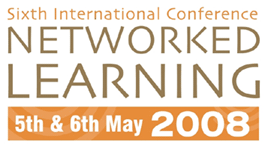

The role of the developer in institutional change: Tales from the edge
Sabine Little
Centre for Inquiry-based Learning in the Arts and Social Sciences (CILASS),
University of Sheffield, s.little@shef.ac.uk
Abstract
This paper explores the role of ‘Learning Development and Research Associate’ (LDRA) in facilitating a community with one pedagogical focus within the institutional context. The role exists within one particular CETL (Centre for Excellence in Teaching and Learning), established by the Higher Education Funding Council for England (HEFCE) as part of the largest national drive for learning and teaching enhancement as yet. All CETLs have the remit to reward excellence in teaching and learning and to drive forward institutional change. The CETL within which the study took place is tightly focused on a pedagogic approach that seeks to empower learners to conduct their own inquiries, either independently or in groups, and to gain the skills necessary for inquiry-based learning, including information literacy, reflection, learner independence, and self-management. In assisting staff with curriculum development, CILASS (the Centre for Inquiry-based Learning in the Arts and Social Sciences) employs two LDRAs who the pedagogical and development support, which often involves the use of networked learning technologies. The paper draws on existing literature that seeks to illustrate the role of learning technologists and educational developers in order to review the wider context within which the study is located.
CILASS uses an evaluation approach which combines Theory of Change and Enabling, Process and Outcome Indicators in order to evaluate both the CETL as a whole and the projects that are developed in departments. This approach encourages a high level of reflexivity and invites LDRAs to research their own role within the CETL. This paper forms part of this reflection, in exploring what role the LDRAs play in facilitating an institutional community with the pedagogical focus on inquiry-based learning. The use of technology plays a specific part as it is not only a common denominator for staff who are interested in developing their teaching, but also forms an actual opportunity for community development through usage of social networking tools. Part of the data for this paper were gathered using such tools.
| About NLC |
2008 Conference Papers
| Conference Committee| Keynote
Speakers
| Papers from previous NL conferences |Research Seminars| Current Conference
| Sponsors | Contact
|
